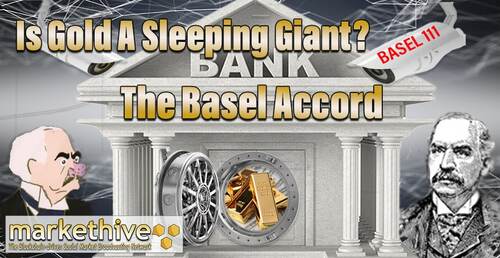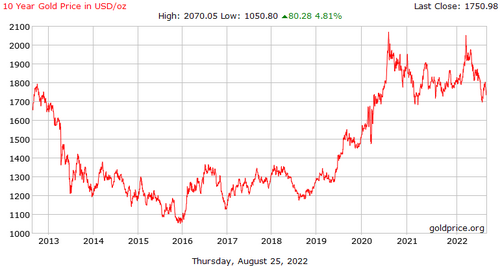

In the light of much focus on cryptocurrency this article examines whether gold will make a comeback and establish its true value and status in our economy.
From time immemorial precious metals have been recognised for their stored value as tangible assets, including silver and gold. A key reason for paper notes becoming used commercially was because it was cumbersome to carry gold and precious metals around in any major quantity for purposes of trade.
Paper notes would be denominated with an inscription pointing to the value of that note in terms of gold and silver. In simple terms they were a bit like coupons. Two particular landmarks in history changed the nature of money. Firstly, things fundamentally changed with the confiscation of gold from the people in the 1930’s by executive order of President Roosevelt.
Then in 1971 gold and silver was removed as backing altogether, courtesy of President Nixon. From that moment the populace had the form of money but not the substance of money, which I referenced in another article. Here in the UK the gold standard was suspended during the Napoleonic War, and brought back for a while from 1821 to 1914.

Image Source: Gold
Gold’s restorative impact on the economy and hedge against inflation was well known. In 1914, £0.95 could buy what £1 pound could buy in 1821, meaning that Britain’s economy strengthened with gold as the key factor. Also Elizabeth I used it to counter inflation during her reign between 1558 and1603.
So, gold has shown itself to be real money and has been the consistent answer to inflation. Based on its track record in history this is one indicator that gold will make a comeback. In the meantime the value of money has been in significant decline for approximately 100 years due to money existing in form alone. Right now as I write this article the UK has now surpassed 10% inflation though I suspect the number is higher. Why?
Mario Innecco is a financial markets and macro economics analyst who recently discovered and reported that the Bank of England had been manipulating data on inflation, to make inflation look better than it really is. The bottom line to curbing inflation is to restore money of substance, in other words to bring back the likes of gold and silver.
The second reason that gold could become resurgent picks up on the theme of manipulation of data. The only reason to manipulate data is when you want it to fit a certain narrative, and to control perception. The conflated numbers cited during the so-called pandemic, show this is a common strategy used by the establishment. If you take a look at the summary gold chart, you will notice that since 2012, when gold was near 1800 per ounce, it declined thereafter to an all time low in 2016.

Image source: Gold Chart
It was not until 2020 during the so-called pandemic that it broke the 2012 record. Again it correlates to rising inflation and yet, the graph resembles a picture of suppression, rather than reflecting its true value according to many commentators. Gold has a history of being stolen, suppressed, and manipulated as far as its data is concerned. This tells its own story of how precious and valuable it is, otherwise you would not see so much energy going into destroying its true worth to the public.
I have always wondered what happened to the abundant supply of gold that used to be? Is it going extinct like the dinosaurs? Gold has not disappeared but it has transferred from the many to the few through asset stripping and theft.
Recall in history when gold was confiscated with such extreme measures and touted as being in the interests of the economy, only to be sold at a higher price by the American government. It revealed the truth and betrayal of the people by the government. It was a form of asset stripping by theft, designed to enrich the few and enslave the many.
You may also recall Karen Hudes, former World Bank employee who blew the whistle and expanded on the fraud, and the theft of gold which was taking place at the higher echelons of the bank. These thefts mean that gold simply got transferred by force to a few global oligarchs.
As it stands today, the World Gold Council reports that the Central Banks hold one fifth of all the existing , with the USA leading the way, although China and Russia are the two biggest producers of gold. While you can buy gold today, the asset stripping strategy is showing up in more subtle forms, as the following case underlines.
According to the dictionary, insider trading is defined as ‘the illegal practice of trading on the stock exchange to one's own advantage through having access to confidential information’. This has been shown to be going on in the stock market in general, and among those implicated are high ranking officials such as Nancy Pelosi, USA speaker of the house, and Federal Reserve chief Jerome Powell. The following case highlights the connections at the highest level.
Recently In Chicago the trial of certain officials of JP Morgan took place. The court discovery revealed what many suspected - insider trading of gold, which involved spoofing and market manipulation. What’s more the court discovery was able to ascertain that JP Morgan were effectively agents for the BIS, and also the Federal Reserve. At one point the label ‘criminal enterprise’ was used to describe the organized theft.
Certain individuals were charged with fraud. It’s interesting that the trial took place in Chicago. COMEX is a division of the Chicago Mercantile Exchange, and is the primary futures and options market for trading metals such as gold, silver, copper, and aluminum.
One of the other fraudulent activities that takes place within these exchanges by insiders is fooling people into thinking they own real physical gold [allocated gold] when in fact they only hold the form of it. ETF stands for exchange traded fund, and is an example of such a paper asset.
The challenge with fraud charges is that so much money is made in fraudulent activities, that many banks think they can simply buy their way out of the consequences. However, that may be stopped in its tracks sooner rather than later.
The Basel Accord, sometimes referred to as Basel IV, comprises Basel III with its three pillars, Basel I, II and III. This is a series of international banking reforms designed to strengthen banking through different economic challenges. It can be summed up in this diagram.
.png)
Image Source: Basel III
This series of regulatory changes are designed to introduce highly disciplined practices to increase safety and to minimize risk in the banking sector. Basel started back in 1974 as a collaborative committee comprising 10 countries including the United Kingdom and USA. Its focus was on quality, safety and efficiency in banking. In 2009 the first version of Basel III came out in response to the financial crisis. Common themes of the accord is the requirement for banks to have greater capital reserves and show liquidity.
Within this comes the monitoring and reporting of key data demonstrating that the bank balance sheets add up. This potentially puts the banks in the headlights where paper versus physical allocated gold is concerned. Now they have to show proper reconciliation. The minimum requirements of Basel III took effect from Jan 2022, and must be fully in play by 2027. The big banks appear to be panicking because they have to report and submit the relevant documents. It seems that they are using this transition to buy up physical gold in huge quantities in order to plug the gaps they created.
Alongside this you have Russia who are now charging in gold for its energy, This has resulted in the G7 banning imports of gold from Russia. This has not stopped Russia. Russia is one of the BRIC countries [including Brazil, India and China], and it is being muted that they may come out with their own gold standard, which would threaten the dominance of the USD further.
Elsewhere, Zimbabwe is now offering gold coins as legal tender to curb inflation, and Lithuania is going down a similar path. Many financial commentators such as Robert Kiyosaki and Jim Rickards are predicting a surge in both gold and silver as a result of the pressure of inflation, Basel III, and the activity around the purchase and use of gold.
If you are wondering if gold is still for the long term as simply a store of value, the good news is that its functionality now goes beyond that. You can buy, trade, save and own gold more easily.
For example the Glint App allows you to buy gold through their app using EUR, USD and GBP. The gold you purchase is physical allocated gold, and is stored in a non government brinks vault in Switzerland. You own it. Furthermore you can digitize what you own through their debit mastercard, meaning you can then spend it on everyday things. I have found the purchase of gold through the app to be seamless, and am looking forward to buying something effectively with gold. Check if GLINT is in use in your country.
Another company that has done something similar is Kinesis. The problem they solve is explained in Gresham’s Law, which is where good money is saved and bad money spent historically. They are creating a banking ecosystem around this concept which allows you to buy gold and silver on their exchange, using fiat or select cryptocurrencies, and then you can store it in your own wallet, as well as to be able to send and receive to other participants in the ecosystem.
They are coming out with a VISA debit card too, both virtual and offline. With their own built in exchange, you can trade gold and silver, and you get yields on different activities such as minting, buying, holding and referring. Off course if you are new to this concept, and simply want to buy physical gold you may wish to look up Mike Maloney on YouTube for educational input and recommendation. If gold backed cryptocurrency appeals to you here is a guide as a starting point for exploration.
I have developed a mini ecosystem within my portfolio which allows me to accept payment for my businesses in gold, as well as to save and make purchases. I also have some gold backed cryptocurrency and related company shares based around gold. It certainly feels more empowering to be working with real money, which surpasses what my traditional bank can do.
Much attention has been focussed on cryptocurrencies as the emerging new ‘money’ especially since bitcoin came into being around 2009. In fact many commentaries refer to bitcoin as the new digital gold, since one of the assertions is that it cannot be confiscated. Confiscation is one consideration but anything that deters access to your money is another, as we saw in a previous article which looked at regulation. The volatility of cryptocurrency does not help with the immediate threat of inflation.
With rampant inflation, the intense suppression of gold through market manipulation, and the imminent full implementation of Basel III, these trends suggest that gold will make a comeback and find its true value. Gold may well be the sleeping giant, as it has an inherent and powerful ability to restore an economy that has gone out of control.
Whatever else you do, consider adding this to your resources to stave off the decline in purchasing power of your local currency. Now you know the game that is being played by the establishment, it is up to we the people, the majority, to protect our assets, in order to create and pass on generational wealth to bless ‘we the people’ ad infinitum.

